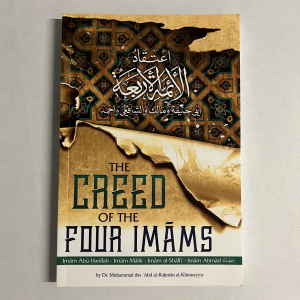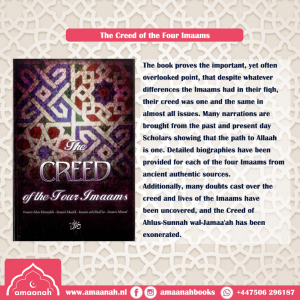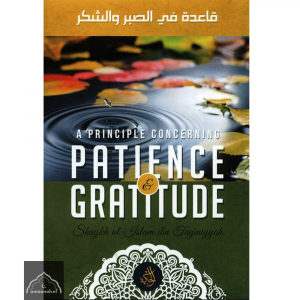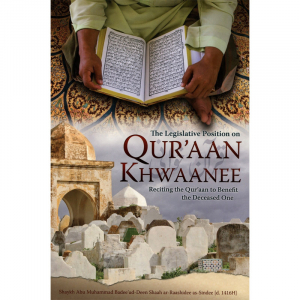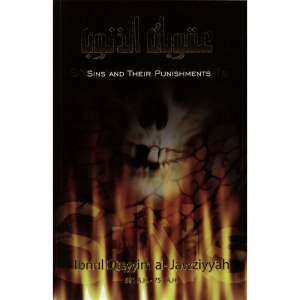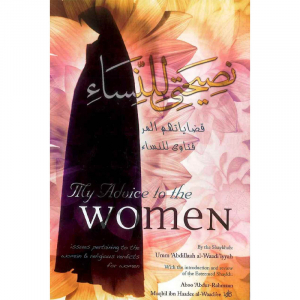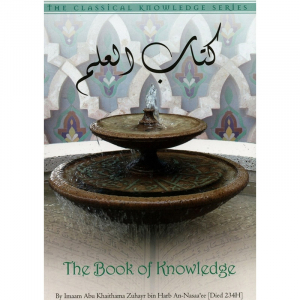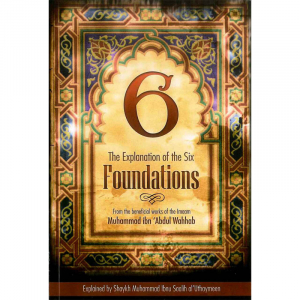- AL-HAFIZ IBN ABI AL-DUNYA
- AL-HAFIZ IBN RAJAB
- IBN QAYYIM AL-JAWZIYYAH
- IBN UTHAYMEEN
- IMAM ABU BAKR AL-AJURRI
- Imam al-Amir Muhammad ibn Isma`il al-Sana`ani
- Imam Al-Khatib al-Baghdadi
- Imam Al-Tirmidhi
- IMAM NAWAWI [D. 674 AH]
- Imam Ibn Abi Zayd al-Qayrawani (d. 389 AH)
- Imam Ibn Al-Jawzi
- IMAM IBN QUDAMAH AL-MAQDISI
- Imām Jalāl al-Dīn al-Suyūṭī
- Imām Muḥammad ibn ‘Abdu’l-Wahhāb
- Imam Muhammad Nasir al-Din al-Albani
- Shaikh ʿAbdu’l–Razzāq Ibn ʿAbdu’l-Muḥsin al-Badr
- Shaikh Ibn Baaz
- Shakyh Abdur-Rahman as-Sadi
- SHAYKH SALIH AL-FAWZAN
- SHAYKHUL-ISLĀM IBN TAYMIYYAH
- Yusuf Abdullah ibn Yusuf al-Wabil

My Dua’ Pillow Flippable Sequins Rose & Gold (Desidoll Company)
€36.99 INCL. BTW
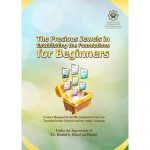
The Precious Jewels In Establishing the Foundations for Beginners
€56.99 INCL. BTW
The Relief From Distress (Darassunnah)
€15.99 INCL. BTW
The author will explain the dua of the Prophet Yunus, peace be upon him, in this book. The Prophet Muhammad ﷺ said about this dua that the one who makes this dua and is experiencing difficulty, Allaah will remove this difficulty from that person.
| Publisher | |
|---|---|
| Binding |
Softcover |
| ISBN |
9781904336136 |
| Pages |
256 |
| Book Author |
Shaykhul-Islam Ibn Taymiyyah |
| Size CM |
16×24 |
| Shelf |
6.3 |
| RRP (Publisher Price) |
£ 12 |
-
 Voor 17.00 besteld, morgen in huis via PostNL
Voor 17.00 besteld, morgen in huis via PostNL
-
 Laagste Prijsgarantie: Zie je hetzelfde product elders goedkoper neem contact op en ontvang een 10% kortingsvoucher
Laagste Prijsgarantie: Zie je hetzelfde product elders goedkoper neem contact op en ontvang een 10% kortingsvoucher
-
 Gratis verzending vanaf 65 euro
Gratis verzending vanaf 65 euro
In stock
SKU:
9781904336136 @ 48.6
Categories: Books, Dar As Sunnah Publications, English Books, General (English), SHAYKHUL-ISLĀM IBN TAYMIYYAH (D. 728H)
Description
The Relief From Distress
An explanation to the dua of Yunus (AS) by Shaykhul- Islam IBN TAYMIYYAH (RA) About the Book: Shaykh aI-Islam ibn Taymiyyah, may Allah sanctify his soul, was asked about the saying of the Prophet (SAW) said, The invocation of my brother Yunus, “none has the right to be worshipped save You; glory be to You, far removed are You from any imperfection; I have been amongst the wrong-doers,” none who is experiencing difficulty employs it except that Allah would relieve him of his difficulty.
1. What is the meaning of this dua?
2. Are their any unstated conditions that have to be met when one articulates it?
3. What is the connection between belief in the heart and the meaning of this supplication such that it leads to the removal of difficulty?
4. Why did he explicitly confess, ‘I have been amongst the wrongdoers’ when it is known that tawhid in itself leads to the removal of difficulty? Is it sufficient to acknowledge ones sin alone, or must this be accompanied by repentance and the firm resolve not to repeat that sin in the future?
5. Why is it that difficulty and harm is removed only when a person relinquishes any hope, reliance and dependency upon the creation?
6. How can the heart relinquish the characteristic of putting hope in the creation and depending upon them, and instead put its hope in Allah, Exalted is He, and turn to Him in its entirety?
7. What are the methods that would aid the heart in doing this?


